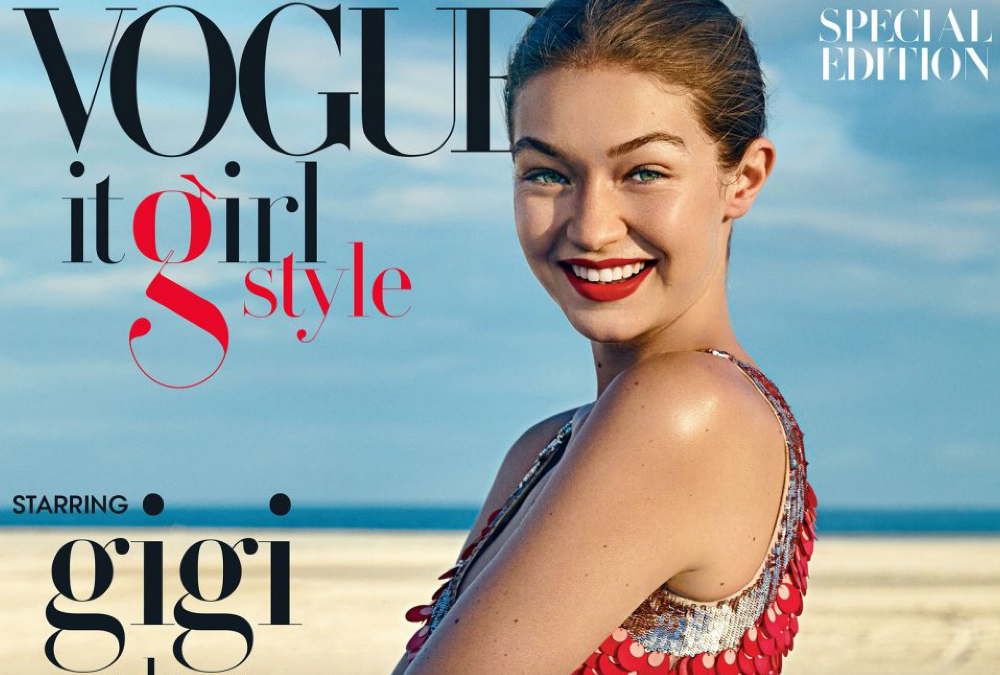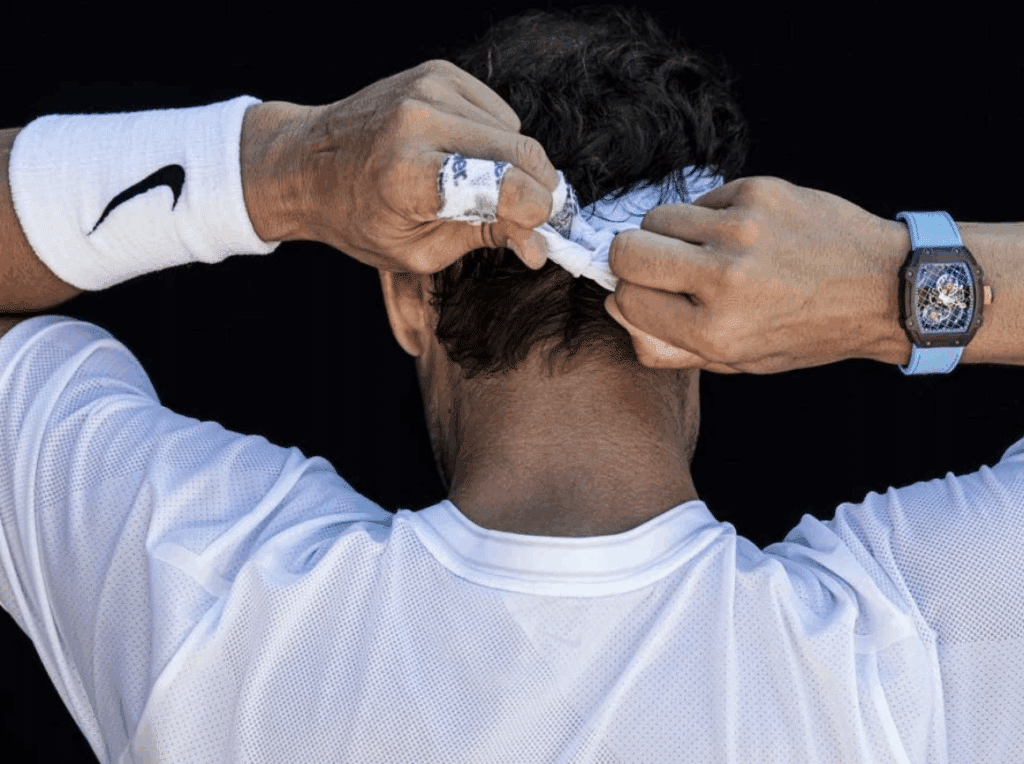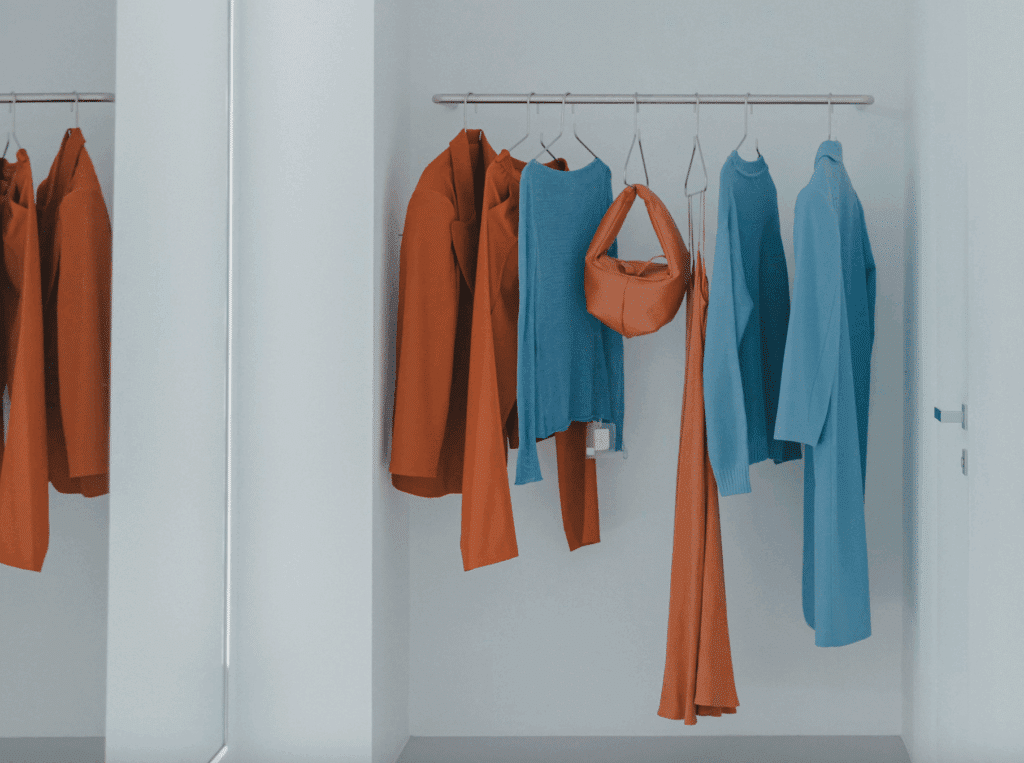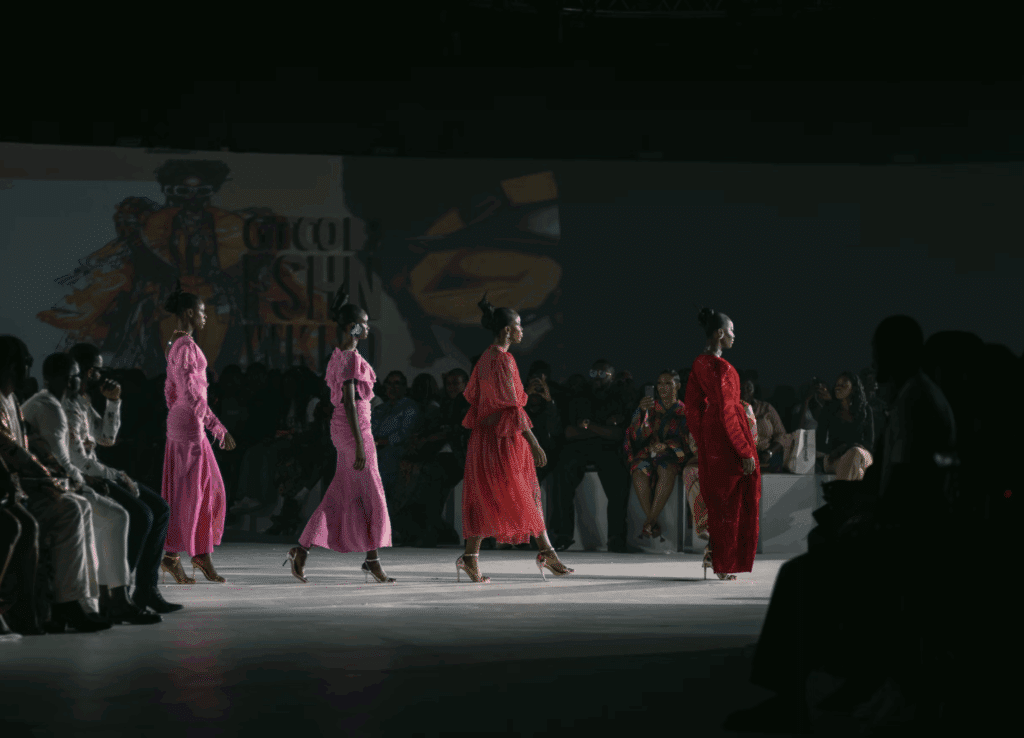Gigi Hadid revealed on Instagram on Thursday that she is being “legally pursued” – presumably on copyright grounds – for posting a paparazzi photo of herself on Instagram. The reported legal action comes after the supermodel and her agency IMG Models were sued last fall for copyright infringement over an Instagram post, and also follows from a similar lawsuit, in which Khloe Kardashian was slapped with a copyright infringement lawsuit after she posted a paparazzi photo of herself on Instagram without licensing the image.
These cases all center on violations of copyright law, which protects “original works of authorship,” including photographs. The holder of a copyright – which in the case of photos is usually the photographer (unless he/she assigns that right to another party, such as a photo agency) – has the exclusive right to reproduce, distribute, perform, display, license, and to prepare derivative works based on the copyrighted work for his entire life and for 70 years after his/her death.
Applied to the since-settled case that was filed against Khloe Kardashian, for example, this means that even though the image that Kardashian posted on her Instagram last year was one of herself “going for a meal at David Grutman’s Miami restaurant, Komodo,” since she is not the copyright holder of that image, she cannot legally post it without authorization from the copyright holder, i.e. Xposure.
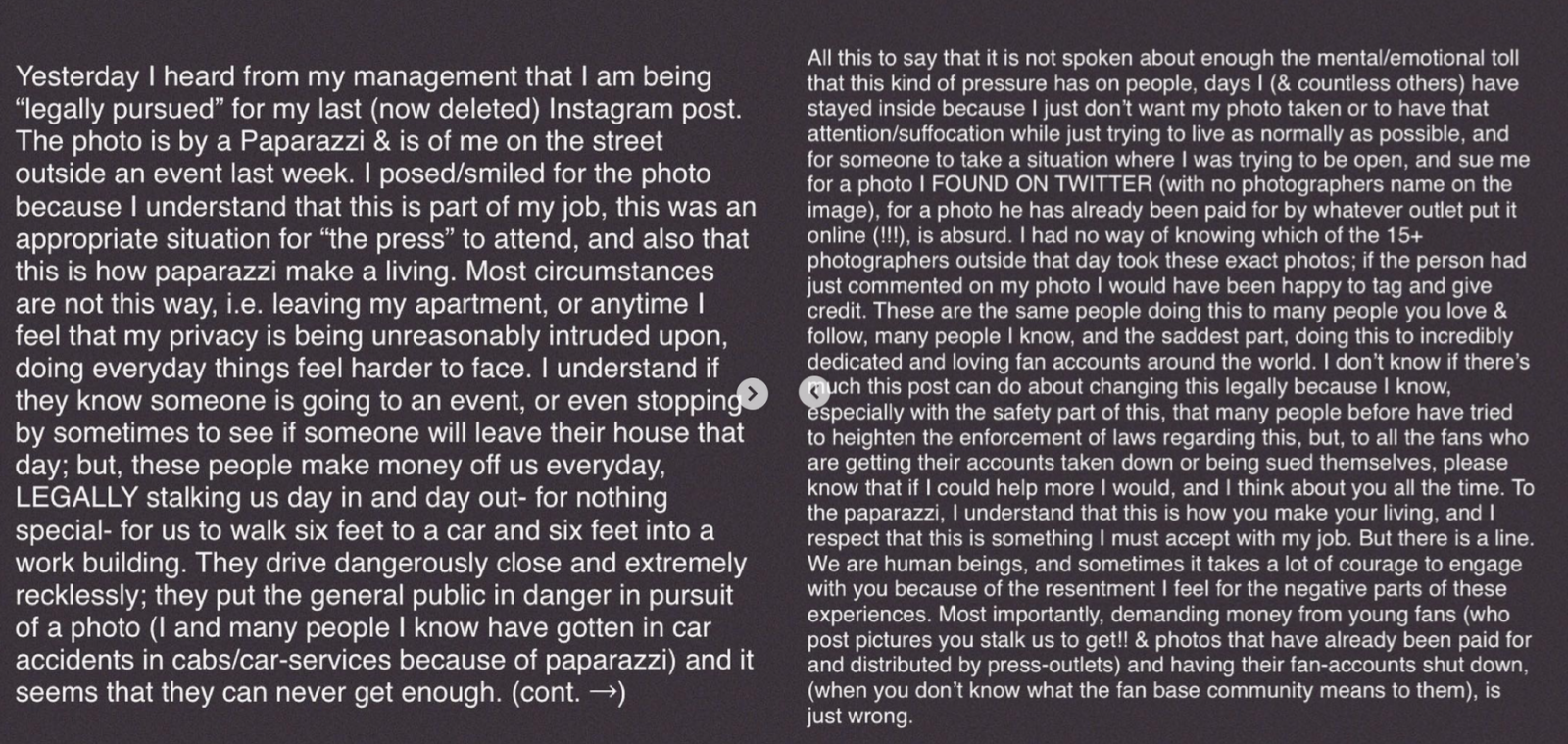
Putting copyright law aside, there is a larger question at issue: at what point does a celebrity’s right to control how others’ profit from his/her likeness extend to paparazzi photos? In other words, is there a right of publicity case to be made against photo agencies/paparazzi more generally?
The right of publicity is a state-specific legal doctrine developed to give individuals the ability to prevent others from commercially exploiting their names and/or likenesses without permission. In accordance with this doctrine, celebrities have grounds to take action when their names, images, likenesses, etc. are used for commercial purposes. This is precisely what actress Katherine Heigl did in 2014 when New York-based drug store chain Duane Reade used an image of her leaving one of its stores in an advertisement.
In theory, right of publicity statutes also gives celebrities the right to take on paparazzi photographers and photo agencies. Should Gigi Hadid or any of the Kardashians initiate such a suit, it would not be the first of its kind. In February 2018, for instance, football star Odell Beckham Jr., filed suit against photographer Miles Diggs and California-based Splash News & Picture Agency for allegedly attempting to “extort” him into paying $40,000 after he posted a photo of himself on his Instagram account. “The audacity of Splash News to demand payment from Beckham – the very person who provided value to the Photos – is shocking, reeks of bad faith, and emphasizes the utterly troll-ish behavior of Diggs and Splash,” the complaint asserts.
Beckham alleges that Diggs sold or licensed the images to Splash, which then licensed them to a variety of gossip websites, including TMZ, and DailyMail.com, in exchange for a royalty fee. However, “The only reason that the photos have any value is because they depict Beckham,” according to the complaint. “Yet, Beckham received no compensation from Diggs or Splash.”
In his suit, the New York Giants wide receiver has asked the court hold that he has not violated copyright law,” and that in fact, it is Splash that is in the wrong, for violating his right of publicity by “exploiting [his] image for personal financial gain.”
However, that case – which is still underway in a federal court in Louisiana, with a trial set to begin in February – will not be an easy one for Beckham, given the newsworthiness/public interest elements at play. Generally speaking, the right of publicity statutes require that in order to use “another’s name, voice, signature, photograph, or likeness, in any manner, on or in products, merchandise, or goods, or for purposes of advertising or selling, or soliciting purchases of, products, merchandise, goods or services,” you must have that person’s consent.
At the same time, explicit in the most states’ right of publicity statutes – or in corresponding case law – is language that states that such consent is not required when the “use of a name, voice, signature, photograph, or likeness [is] in connection with any news, public affairs, or sports broadcast or account, or any political campaign.”
With that in mind, it might prove difficult for celebrities – given their rabid fan bases – to argue that many instances, even their otherwise objective average outings, do not fall within this “newsworthiness” exception.
As for whether there are protections for celebrities aside from right of publicity claims, there has been an array of federal and state legislation enacted to address paparazzi behavior.
In 1997, Congress introduced (and subsequently passed) federal legislation, known as the Protection From Personal Intrusion Act, which aims to curb the dangerous paparazzi behaviors by making it a crime to “persistently physically follow or chase a victim in circumstances where the victim has a reasonable expectation of privacy and has taken reasonable steps to insure that privacy, for the purpose of capturing by a camera or sound recording instrument of any type a visual image, sound recording, or other physical impression of the victim for profit in or affecting interstate or foreign commerce.”
This has been followed by a number of bills passed in California. One such bill, which was written into the California Vehicular Code in 2010, elevates the penalties for “any person [who] violates [various safe driving laws], with the intent to capture any type of visual image, sound recording, or other physical impression of another person for a commercial purpose.” In 2015, the 2nd District Court of Appeal in Los Angeles upheld the constitutionality of that law, holding that the law is not overbroad and does not violate the First Amendment.
This legislation is joined by a number of other state-specific laws aimed at curtailing dangerous paparazzi behavior. It is worth noting that despite the existence of these laws, they are infrequently cited as claims in litigation.







